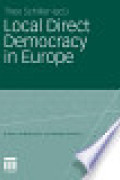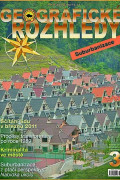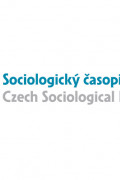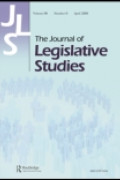Death and dying is one of the overlooked areas in the Czech Republic. The prolonging of dying in neo-modern/ late-modern societies requires not just medical care but also very important social care that is a major factor in maintaining high quality of life right to the end. Czech social policy has so far only dealt with death as a marginal topic and it would be good if it learnt from experiences abroad.
Topic: social policy, age and ageing, public policy
This chapter overviews legislation on local referendums in the Czech Republic from the early 1990s to the present. It also provides data on the number and kinds of local referendums that have taken place over that time, and discusses factors that shape referendum turnout. The chapter also discuss the local referendum in Brno in 2004 as an example of a local Czech referendum in practice.
Topic: civil society, politics (and political attitudes)
This article examines the recall process in Polish and Slovak local government, where disatisfied residents have already ousted from power dozens of mayors, often on the basis of perceived corruption or abuse of power. In these countries, the local recall is among the most important innovations supporting civic engagement.
Topic: corruption, civil society, public administration
This article focused on the transformation of class voting in the Cyech Republic with the use of the best data available and analytical methods used in the international literature. Contrarz to that literature, we found that there has been a strengthening of the role of class membership on voting behavior. While in the Western countries studied in the literature this trend is decling or fluctuating, in the Cyech Republic it is the opposite.
Topic: social inequalities, elections (and polls)
Téma odchodu z města na venkov je nejen námětem filmových či románových příběhů, ale je také předmětem geografického výzkumu. Předložený text si klade za cíl ukázat, kteří lidé nejčastěji odcházejí z města na venkov a jaké k tomu mají důvody. Na příkladech analýzy vyprávění městských migrantů, kteří se trvale usídlili na venkově, ukazuje, jak tito lidé vnímají rozdíly mezi životem ve městě a životem na venkově.
Topic: urban and rural studies, migration and mobility, lifestyle
The article presents the results of an ethnographic study focusing on eighth- and ninth-year students at two basic schools in Prague. The author conceives academic success and failure as categories that need to be explained; it is necessary to demonstrate how they are produced and ascribed with meaning in the everyday practice of student evaluation.
Topic: social inequalities, education
The paper provides a survey of the key thematic and methodological milestones in research into educational inequalities. It focuses on authors and concepts that introduced major innovations and contributed to significant advancements in the analysis and knowledge of educational inequalities. We have distinguished three periods, focusing on two key concepts in each. Three of the concepts are presented as breakthrough methodological innovations and three are viewed as thematic innovations.
Topic: methodology, social inequalities, education
Topic: gender, work, sociology of science, education
The aim of the article is to identify the trend in educational fluidity in the Czech Republic between 1990 and 2009 and offer an explanation for it. The authors analyse trends in educational fluidity from a period and birth cohort perspective. The findings show that educational fluidity did not increase in Czech society between 1990 and 2003. From 2004 to 2009 this trend changed and a slight increase in educational fluidity became evident.
Topic: intergenerational relations, social inequalities, education
The European Union Statistics on Income and Living Conditions (EU-SILC) set of surveys are an important source of comparative statistical data. EU-SILC provides data on income, living conditions, poverty and social exclusion, material deprivation: topics of growing interest to scholars in Europe and elsewhere. EU-SILC surveys are fielded in 29 European countries and coordinated by Eurostat.
Topic: methodology, wages and incomes
The report on Czech Republic is a part of study supported by Bertelsmann Stiftung – Sustainable Governance Indicators. The whole report offers a comparative assessment of 31 OECD countries. The concepts of sustainability and governance form the conceptual underpinnings of the SGI’s two pillars, the Status Index and Management Index.
Topic: EU, politics (and political attitudes)
The chapter deals with the concept and development of European social dialogue, with the preparedness of Czech social partners for this dialogue and with thein first experiences
Topic: civil society, politics (and political attitudes), social policy
The article presents evidence on the development and patterns of self-employment in four CEE countries. In reference to completed research, the author points out the specific features of the development of these categories in the communist and market regimes. Next, he shows in more detail the changes in the number and position of self-employed in the Czech Republic after 1990. Third, he draws on the EU-SILC surveys to compare self-employed persons in CEE countries, Austria and Germany.
Topic: wages and incomes, transformation
This article deals with empirical research on poverty in Czechoslovakia in terms of three distinct phases. Between 1918 and 1948, considerable attention was devoted to poverty, but research possibilities modest. During the 1948 to 1989 period, the communist regime allowed “examinations” of poverty for the purpose of depicting pre-war capitalist Czechoslovakia as an impoverished, class-divided society.
Topic: social inequalities, social policy
This paper compares the development in four Central European parliaments in the second decade after the fall of communism. At the end of the first decade, the four parliaments could be considered stabilised, functional, independent and internally organised institutions. Attention is paid particularly to the changing institutional context and pressure of ‘Europeanisation’, the changing party strengths, and the functional and political consequences of these changes.
Topic: EU, politics (and political attitudes)
Topic: standard of living
The aim of this study is to find out which characteristics affect the age identity of individuals. The main question is: What determines whether the people in the Czech Republic find themselves young, middle aged or old? Two alternative hypotheses were tested: a) the age identity is mainly influenced by person’s family and working roles; b) the age identity is primarily a function of person’s chronological age and his health.
Topic: identity, age and ageing
The article deals with three basic questions: what is and what is not the ageism, how serious is ageism in Czech Republic based on the research European Social Survey Round 4 and what are the ways of reducing ageism.
Topic: trust/social cohesion, intergenerational relations, social inequalities, age and ageing
This article examines travel as a form of consumption behaviour. It begins by presenting some of the ideas outlined in Gilles Lipovetsky’s Le bonheur paradoxal. Then, using tourism statistics and statements of young people recorded in a qualitative study, it looks at how much Lipovetsky’s ideas can be inspirational for interpreting the attitudes of young Czechs towards travel.
Topic: value orientations, lifestyle
Topic: value orientations, identity, regions






Newsletter
Facebook
X
Tweets by SociologickyNewsletter